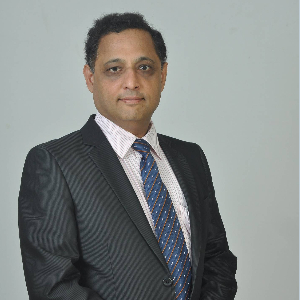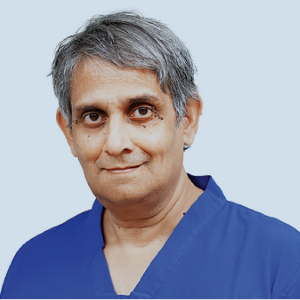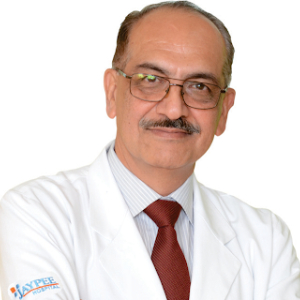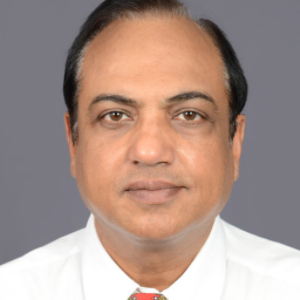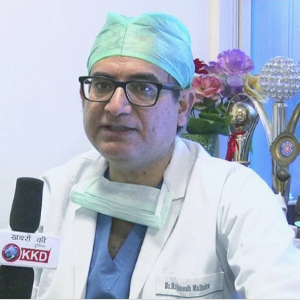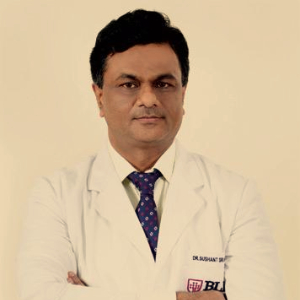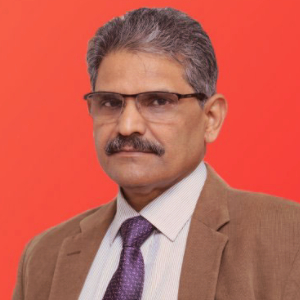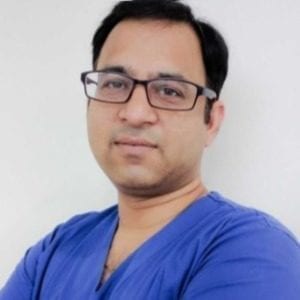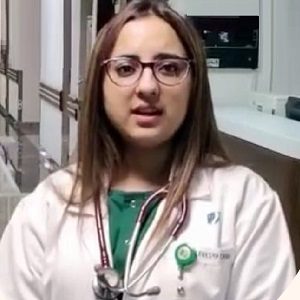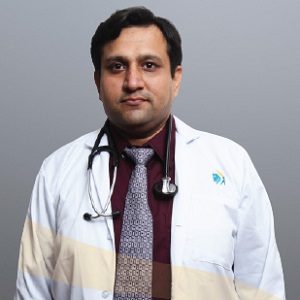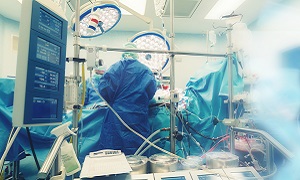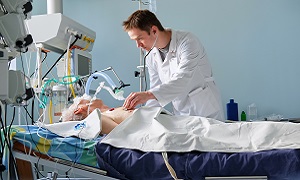Best Lung Transplant Surgeons in India
- Cardio Thoracic & Vascular Surgeon, Mumbai, India
- Over 30 years’ experience
Profile Highlights:
- Dr. Anvay Mulay is a well-known cardiothoracic and vascular surgeon in Mumbai and one of the best heart transplant surgeons in India.
- He holds an extensive experience of close to 3 decades and has been associated with renowned cardiac hospitals in India, US, and UK.
- Dr. Mulay is one of the top surgeons for Adult cardiac procedures in India. He was the first to introduce LVAD in West and Central India when he performed the surgery on a 49-year-old patient.
- Heart Lung Transplant Surgeon, Chennai, India
- Over 40 years’ experience
Profile Highlights:
- Dr. K R Balakrishnan is a highly coveted cardiac surgeon in India and is probably one of the best heart transplant surgeons in the country.
- He has performed the largest number of heart transplants in the country including 180+ heart transplants, 23 lung transplants, and 9 heart & lung transplant procedures. He performed the first permanent artificial heart transplant in India with HeartMate II LVAD.
- Dr. K R Balakrishnan has over 40 years of experience in the field and has the expertise to perform cardiac surgeries on patients of all ages. He has performed over 16000 cardiac surgeries for various types of heart diseases and disorders till date.
- Cardiac Surgeon, Noida, India
- Over 30 years’ experience
Profile Highlights:
- Dr. Manoj Luthra is a highly experienced and renowned Cardiac surgeon who has 30+ years of experience and performed the first heart transplantation surgery in the Indian Armed Forces.
- Till date, Dr. Manoj Luthra has performed more than 12,000 cardiac surgeries including 8000 heart bypass surgeries. He has also performed many heart transplants and aneurysm surgeries.
- Cardiac Surgeon, Mumbai, India
- Over 36 years’ experience
Profile Highlights:
- Dr. Nandkishore Kapadia is one of the leading Cardiothoracic and vascular surgeons in India excelling in heart and lung transplant surgeries.
- He has 36+ years of experience in the field during which he has performed over 10000 CABGs, 2000 heart valve repairs, and 800 minimally invasive cardiac surgeries.
- He has also performed more than 5000 open heart surgeries, 200 heart and lung transplant surgeries, and 150 VAD and ECMO implantation procedures.
- Cardio Thoracic & Vascular Surgeon, New Delhi, India
- Over 30 years’ experience
Profile Highlights:
- Dr. Rajneesh Malhotra is a distinguished cardiovascular and thoracic surgeon in India with over 30 years of experience.
- He is an expert in all kinds of cardiac surgeries with a special interest in Robotic Cardiac surgery along with minimally invasive cardiac surgery and other traditional heart surgeries.
- Dr. Rajneesh Malhotra has performed several complex and high-risk cases and also specializes in heart transplant surgeries and surgeries for heart failure.
- Chairperson Heart & Lungs Transplant, New Delhi, India
- Over 20 years’ experience
Profile Highlights:
- Dr. Sushant Srivastava is a renowned cardiovascular and thoracic surgeon specializing in heart transplantation.
- He specializes in performing Beating Heart Bypass surgeries and is credited with performing the procedure on the oldest patient in India (96 years old). He also performed the first awake CABG in North India.
- He has taken up close to 10000 cardiac cases in his career and performed 3000+ cardiac surgeries related to Coronary Artery Bypass Grafting (CABG), redo coronary artery surgery, heart failure surgeries, heart valve surgeries, and various other types of cardiac surgeries.
- Cardiac Surgeon, New Delhi, India
- Over 30 years’ experience
Profile Highlights:
- Dr. Yugal Kishore Mishra is a well-known cardiovascular and thoracic surgeon in Delhi specializing in Minimally Invasive and Robotic cardiac surgeries.
- He has 3 decades of experience in CTVS and has performed more than 19,000 open heart surgeries to date that including various types of minimally invasive cardiac procedures such as the port access approach for valve surgery and ASD closure.
- He is the founder of the Robotic Cardiac Surgery Program at Fortis Escorts Heart Institute where he has performed over 500 robotic cardiac surgeries.
- Cardiac Surgeon, Gurugram, India
- Over 15 years’ experience
Profile Highlights:
- Dr. Rachit Saxena is an experienced cardiac surgeon, who is known for his extreme dedication to his profession, and for providing absolute patient satisfaction.
- Supported by an efficient cardiac surgical team, Dr. Saxena is known for successfully managing the most complex of cardiac surgical problems.
- Dr. Rachit Saxena is known especially known for the capability to perform cardiac surgery with minimal blood requirement and ensure early mobilization and return to work.
- Pulmonologist, New Delhi, India
- Over 10 years’ experience
Profile Highlights:
- Dr. Aakanksha Chawla is one of the best young pulmonologists in Delhi. She is a practicing consultant in Respiratory Medicine/ Pulmonology at Indraprastha Apollo Hospital, New Delhi.
- Dr. Chawla holds a diploma and fellowship in critical care medicine. She specializes in Chest, Critical Care, Respiratory, Pulmonology, Asthma, COPD, TB, ILD, and Tuberculosis treatment.
- Dr. Chawla has offered great satisfaction from her treatment with a small experience of 10 years. She is a good communicator too.
- Dr. Chawla has co-authored many research studies on Respiratory Distress
- Pulmonologist, Respiratory Medicine Specialist, New Delhi, India
- Over 13 years’ experience
Profile Highlights:
- Dr. Nikhil Modi is a young pulmonologist from India with having specialization in Critical Care, Respiratory, and Sleep Medicine.
- He has nearly 13 years of experience treating critically ill patients in many verticals.
- Dr. Modi is currently working as a consultant Pulmonologist in the Department of Pulmonology, Critical Care at Indraprastha Apollo Hospital, New Delhi.
- He got vast exposure to fibreoptic bronchoscopy and managing other chest disorders.
- Dr. Nikhil Modi is active in paper presentations at conferences, and research as well. He has also published papers and studies in various medical journals.
Best Lung Transplant Hospitals in India
Fortis Escorts Hospital, New Delhi
- City: New Delhi, India
Hospital Highlights:
- Over the last 33 years, the Fortis Escorts Heart Institute has set new standards in cardiac treatment with groundbreaking research. It is now known around the world as a centre of expertise for Cardiac Bypass Surgery, Interventional Cardiology, Non-invasive Cardiology, Paediatric Cardiology, and Paediatric Cardiac Surgery.
- The hospital has cutting-edge laboratories that perform a wide range of diagnostic tests in Nuclear Medicine, Radiology, Biochemistry, Haematology, Transfusion Medicine, and Microbiology.
- Fortis Escorts Heart Institute boasts a diverse group of bright and experienced doctors who are backed up by a team of highly qualified, experienced, and devoted support professionals as well as cutting-edge equipment such as the recently installed Dual CT Scan.
- Approximately 200 cardiac doctors and 1600 personnel currently collaborate to manage over 14,500 admissions and 7,200 emergency situations each year. The hospital now has a 310-bed infrastructure, as well as five cath labs and a slew of other world-class amenities.
Rela Hospital, Chennai
- City: Chennai, India
Hospital Highlights:
- RIMC is a multi-specialty hospital in a sprawling area of 36 acres located in Chromepet, Chennai, Tamil Nadu, India.
- The facility has 450 beds including 130 critical care beds, 9 operating rooms, modern reference laboratories and radiology services, and is conveniently located near road, rail and air transportation.
- RIMC is led and managed by world-renowned physicians committed to healthcare.
- RIMC offers the broadest range of clinical care, education, and research. The hospital offers state-of-the-art technology and modern treatment facilities designed to provide health care at an affordable cost.
- Rela Institute is driven by patient needs, comfort and confidence.
CARE Hospitals, Hyderabad
- City: Hyderabad, India
Hospital Highlights:
- CARE Hospitals were established in the year 2000, by CARE Group.
- The multispecialty hospital has 435 beds, including 120 critical care beds, with an annual inflow of 180000 outpatients and 16,000 in-patients.
- The hospital provides specialty medical services in Cardiology, Cardiothoracic Surgery, Pediatric Cardiology, Pediatric Cardiothoracic Surgery, Neurology, Neurosurgery, Nephrology, and Urology.
- The hospital has the first dual source, 128 slice CT scanner (for high precision cardiac imaging) – the first of its kind in south India.
- The hospital offers a wide range of accommodation facilities for the convenience of its varied patient base, ranging from general wards to super deluxe rooms.
Fortis Hiranandani Hospital, Mumbai
- City: Mumbai, India
Hospital Highlights:
- Fortis Hiranandani hospital was established in 2007.
- The hospital is an advanced tertiary care, multi-specialty hospital equipped with 149 beds.
- The hospital is equipped with a super ICU to provide emergency medical care to critically ill patients.
- The hospital is NABH accredited.
- The critical care facility in the hospital is augmented with the state-of-the-art facilities that facilitate speedier diagnosis and efficient monitoring.
- The hospital provides specialty medical services in cardiology, orthopedic science, pediatric science, neurology, diabetic care, urology, nephrology, ENT, obstetrics, gynecology, cosmetic surgery, bariatric surgery, neuro and spine care.
Fortis Hospital, Anandpur, Kolkata
- City: Kolkata, India
Hospital Highlights:
- Fortis Hospital, Anandapur, Kolkata is a world-class super-speciality equipped with the latest technologies in the medical world.
- The hospital is NABH accredited.
- This state-of-the-art facility specializes in cardiology and cardiac surgery, urology, nephrology, neurosciences, orthopaedics, digestive care, emergency care and critical care.
- The hospital, governed by integrated Building Management System (IBMS), has a pneumatic chute system, for quick vertical and horizontal transportation between floors, facilitating speedy transfer of patient specimens, documents, reports, and medicines to the concerned departments.
- The hospital also has a nephrology department with over 28 advanced dialysis units.
Fortis Hospital Banerghatta, Bengaluru
- City: Bengaluru, India
Hospital Highlights:
- Fortis Hospital Bannerghatta, Bengaluru was established in 2006.
- The hospital is a 276 bedded multi-specialty tertiary care facility.
- The hospital specializes in cutting-edge medical technology and dedicated patient care services.
- The hospital is equipped with state-of-the-art technologies like trans-radial angioplasty, trans-abdominal cardiac surgery, and computerized TKR navigation surgery.
- The hospital provides specialty medical services in cardiology, cardiac surgery, orthopedics, neurology, neuro-surgery, GI, and Minimal Access Surgery (MAS).
Fortis Hospital, Malar, Chennai
- City: Chennai, India
Hospital Highlights:
- Fortis Malar was established in 1992 and was formerly known as Malar Hospital.
- The hospital specializes in cutting-edge medical technology and dedicated patient care services.
- The hospital is multi-specialty, tertiary care facility with 180 beds.
- The hospital offers comprehensive medical care in specialties such as cardiology, cardio-thoracic surgery, neurology, neurosurgery, orthopedics, nephrology, gynecology, gastroenterology, urology, pediatrics, and diabetes.
Gleneagles Global Hospital, Parel, Mumbai
- City: Mumbai, India
Hospital Highlights:
- Gleneagles Global Hospital The 450-bed facility comprises of 17-stories, housing state-of-the-art infrastructure, and advanced medical care facilities.
- The hospital offers end-to-end clinical, surgical, and diagnostic services. It is equipped with a team of eminent medical professionals aided by qualified nurses and medical staff
- The Hospital offers advanced Endoscopic procedures, Hepatobiliary and Liver Surgeries, Surgical and Medical Gastroenterology, Bariatric Surgery, and Robotic surgery.
- The hospital is a center of excellence for Orthopedics, Joint Replacement, Knee Replacement, and Hip Replacement surgery.
Jaypee Hospital, Noida
- City: Noida, India
Hospital Highlights:
- Jaypee Hospital is the flagship hospital of the Jaypee Group.
- This hospital has commissioned 525 beds in the first phase and has been planned and designed as a 1200 bedded multi-specialty facility.
- It holds the accreditation of the NABH and NABL.
- The hospital has state-of-the-art infrastructure equipped with the latest technologies and modern equipment like 64 Slice PET CT, Dual Head 6 Slice SPECT CT, Gamma Camera, and Da Vinci Robotic Surgery for comprehensive robotic surgical solutions.
- It has special Centers dedicated to the major specialties to provide hassle-free and high-quality clinical care.
Manipal Hospital, Dwarka, Delhi
- City: New Delhi, India
Hospital Highlights:
- Manipal Hospitals, Dwarka, is a super-specialty hospital in Dwarka, New Delhi, which is a part of Manipal Hospitals Group.
- The hospital aims to provide the best treatment on par with international standards at a fraction of the cost.
- Equipped with 380 beds, the hospital is also one of the new age hospitals which are equipped fully with state-of-the-art infrastructure, cutting-edge technology as well as the latest and advanced clinical practices. The hospital also has 13 modular Operation theatres with 118 beds which are solely meant for critical care.
- The hospital comprises internationally acclaimed doctors and highly professional and experienced hospital and medical staff who are able to provide preventive, therapeutic, and diagnostic services all under one roof.
Lung Transplant
Lung transplant is an effective treatment for people with severe lung disease, where a diseased or failing lung is replaced with a healthy lung, usually from a deceased donor. This treatment option is reserved for people who have tried multiple other treatments but failed to see any significant improvements.
Depending on the patient’s condition, a lung transplant can involve replacing one of the lungs or both of them. Sometimes, the lungs are transplanted along with a donor’s heart. Even though a lung transplant can involve several complications, it generally improves one’s health and quality of life.
Purpose
Unhealthy or damaged lungs can make it difficult for one to get the required amount of oxygen. The lung’s function can be affected due to a variety of diseases and conditions; some of the most common ones including:
- Chronic obstructive pulmonary disease including emphysema
- High blood pressure in the lungs (pulmonary hypertension)
- Scarring of the lungs
- Cystic fibrosis
Even though lung damage is usually treatable with medication or special breathing devices, when these measures are no longer able to help or the lung function reaches a life-threatening condition, a lung transplant might be suggested by your doctor.
People who are suffering from coronary artery disease might need a procedure for restoring blood flow to a blocked or narrowed artery in the heart, along with a lung transplant. In some cases, people having serious heart and lung conditions might need a combined heart-lung transplant.
However, it is also noteworthy that a lung transplant is not the right treatment for everyone. Certain factors can sometimes mean that you are not a proper candidate for the transplant. It might not be the proper treatment if you
- Have an active infection
- Have serious diseases including kidney, liver, or heart diseases
- Have a recent personal medical history of cancer
- Are unwilling or unable to make the necessary lifestyle changes necessary to keep your donor lung healthy, which includes avoiding alcohol and smoking
- Do not have a network of supportive friends and family
Preparation
Preparations for a lung transplant usually begin a long time before the transplant. Sometimes you might need to prepare for a lung transplant weeks, months or even years depending upon the waiting time for your transplant.
If your doctor recommends a transplant, you will be referred to a transplant center for your evaluation. You are free to select a transplant center of your choice as well. When you are evaluating a lung transplant center, do keep in mind to:
- Check with your health insurance provider to know which transplant centers are covered by your insurance plan
- Look at the number of lung transplants the center performs each year as well as the survival rates of the recipients.
- Consider additional services that your transplant center provides, such as travel arrangements, support groups, help to find local housing for your recovery period, etc.
Once you have made up your mind to have your lung transplant, you will need an evaluation in order to see if you are eligible for the transplant. During an evaluation, your medical history will be reviewed by your doctors and transplant team and a physical examination will also be conducted. A physical examination along with several other tests will also be required in order to evaluate your mental and emotional health.
The benefits and risks of the transplant will also be discussed by your transplant team as well as what you should expect before, during and after your transplant. Your name will be registered as well as placed on the waiting list, once you are determined eligible for the transplant.
If the transplant team determines you as a candidate for a lung transplant, your name will be registered and placed on a waiting list. Since the number of people who need lung transplants exceed the number of donated lungs available, unfortunately, some people die while they wait for their transplant.
While you are on the waiting list, your medical team will be closely monitoring your condition as well as alter your treatment as needed. Your doctor might also recommend healthy lifestyle changes, which include eating a healthy diet, getting exercise on a regular basis and avoiding tobacco.
Your doctor might also recommend you take part in a pulmonary rehabilitation program while you are waiting for the donor’s lung, as this can help in improving your health as well as your ability to function in daily life before and after the transplant.
As soon as a donor organ is available, the donor-recipient matching system administered by the United Network for Organ Sharing will find an appropriate match based on specific criteria, which includes:
- Blood type
- Size of organ compared with the chest cavity
- How severe the recipient’s condition is
- Geographic distance between the donor organ and transplant recipient
- Likelihood that the transplant will be successful
- Overall health of the recipient
Even though it can take months or even years before a suitable donor is available, you should be prepared at all times. Make sure that your transplant team is able to reach you at all times.
Keep your hospital bag packed and remember to include a 24 hour supply of your medications. Also arrange transportation to the center in advance, as when the organ is available, they will be expecting your arrival in just a few hours.
After you arrive, you will need to undergo tests in order to make sure that the lung is a good match, and you are healthy enough for surgery. The donor’s lung needs to be healthy as well, or else it will be declined by the team. If it doesn’t seem like the transplant will be a success, it might be cancelled.
Procedure
You will receive general anesthesia before the procedure and therefore, you will be unaware throughout the process and won’t feel any pain. You will get a tube that will be guided through your mouth and into your windpipe so that you are able to breathe.
First, your surgeon will be making a cut in your chest for removing your diseased lung. The main airway to that lung as well as the blood vessels between that lung and your heart will next be connected to the lung of the donor. In some transplants, you might be connected to a heart-lung bypass machine, which will circulate your blood throughout the procedure.
After the transplant
A tube in a vein will deliver strong medications for controlling pain and to prevent rejection of your new lung. As your condition improves, you will not need a mechanical ventilator anymore and you will be moved out of the ICU as well. Recovery can involve a one-to-three week hospital stay and the amount of time you will spend in the ICU and in the hospital may vary.
Once you leave your hospital, you will require around three months of frequent monitoring by the lung transplant team for preventing, detecting and treating complications as well as for assessing your lung function. You need to stay close to the transplant center and over time, your follow-up tests can get less frequent.
Few important things you need to include your routine include:
- Education sessions so that you can learn your complicated new lifelong medication plan.
- Frequent visits to your doctor.
- Regular tests of lung function, chest X-rays, blood tests as well as procedures like bronchoscopy
Many transplant centers offer temporary housing nearby so that it becomes easier for their patients to make visits easily and frequently.
A lung transplant can help one to remove breathlessness and live an active and healthy life for years. 4 out of 5 people who have had lung transplant surgery, has reported to have no limitations on their physical activity.
However, complications after the transplant may eventually arise. The immune system’s rejection of the donor’s lung can be slowed, though it can’t be stopped entirely. The necessary powerful immune-suppressing drugs have some side effects which are unavoidable. These may include kidney damage, diabetes, etc. Survival after transplant is mostly influenced by age.
Risks
In a few cases, complications which are associated with a lung transplant can be serious and sometimes fatal. Rejection and infection are known to be the most common risks.
Risk of rejection: Your immune system is meant to defend your body against any foreign substances. Even if there is a match between you and your donor, your immune system will attempt to attack and reject your lung or lungs. The risk of rejection is highest soon after the lung transplant and over time it reduces.
You will need drugs to suppress the immune system to prevent rejection of your new organ. You might need to use these anti-rejection drugs for as long as you live.
Anti-rejection drugs can have some noticeable side effects, which will include weight gain, stomach problems and facial hair.
Sometimes anti-rejection medications can even increase your risk of developing new conditions or even worsen your existing conditions, such as diabetes, cancer, kidney damage, osteoporosis and high blood pressure.
Risk of infection: Since the anti-rejection drugs suppress your immune system, this can make your body more susceptible to infections, especially in your lungs.
Washing your hands regularly, and avoiding large crowds as well as people who might be ill are some of the steps one can take to avoid any kind of infection.

